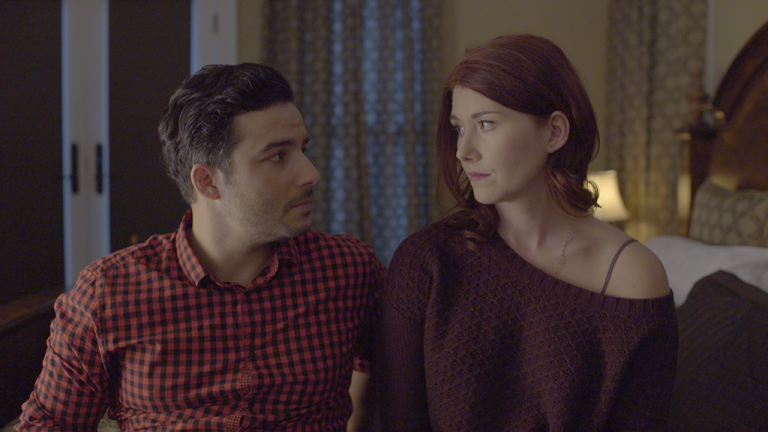Elise Marion
CONTRIBUTOR
How to Plan an Orgy in a Small Town is more than a provocative title, and viewers will be drawn, delightfully, into Jeremy LaLonde’s latest indie film. The story delves deep into what happens behind closed doors in a close-minded town, and questions society’s treatment of sexual empowerment.
Director LaLonde disagrees with the cliché that everyone knows everyone in small towns. “I don’t think that’s really true. What ends up happening is that people hide more.”
This idea becomes a central premise in How to Plan an Orgy, which satirizes the distinct personality of a small town through the portrayal of Beaver’s Ridge. After being “slut-shamed” as a teenager, Cassie Cranston returns to her hometown years later to attend her mother’s funeral, interrupting former friends’ lives with her big-city, sex-columnist ideas.
Early into the film, one of the main characters, Adam, asks his wife if they are “orgy people.” The characters all struggle with exploring and experimenting with their sexuality, and many of them experience moments of awakening. The story is about individuality, realizing who you are and the moments that define you. Cassie is the instigator for these revelations, stirring up the carefully constructed lives of her frenemies that already seem to be falling apart.
Sex in general, and orgies in particular, becomes a gateway for the characters’ personal growth. With Cassie’s help, they overcome their predispositions about sex, with their spouses and with each other, through the planning of their own “small town orgy.”
At first glance LaLonde’s film sets out as a comedy, but it evolves into a bittersweet second-phase coming of age story that preserves its comic intrigue, proving that personal development can happen at any point in your life. It shows the layers of marriage and relationships, how they can be peeled and exposed, but also stitched back together. The characters are complex and charming, offering a fresh perspective on life after high school and how we, as individuals, can learn from our past mistakes.
Small towns have a depth and history that is different and more intimate than large ones. You see people you went to school with, and you know their parents, and they know yours. The characters in LaLonde’s film grew up together, and they carry their past with them.
“I like telling stories about relationships that have a history as opposed to people meeting for the first time. There’s something more rich about that,” says LaLonde.
The protagonist Cassie should be relatable for anyone who has moved away from home. Trying to find your place in the world is often uncomfortable, causing that familiar feeling of displacement. When Cassie returns to Beaver’s Ridge after living in Toronto, she finds that her big-city ideas don’t fit in. As the characters see each other through Cassie’s fresh eyes, they start to understand that they are each maintaining their own sort of façade.
LaLonde was raised in a small town, and sees some of himself in Cassie. When your people know my people, “there is a pressure to be a certain thing.” In the city, you’re surrounded by people but you don’t get to know all of your neighbours. “But that’s not necessarily a bad thing,” he admits.
Sometimes, a little anonymity can be good.
How to Plan an Orgy breaks down the walls of its small town characters, allowing them to come to terms with themselves. It truly is a second-stage coming of age story. The 30-year-old characters are coming out of their quarter-life crises, and are just beginning to accept who they are, not who people think they are.
“That’s what the movie is about for me,” says LaLonde. “People finally getting closer to who they are and being comfortable with that.”
How to Plan an Orgy in a Small Town plays at the Grand River Film Festival, at Cambridge Community Players, on November 7.
Four used condoms out of five.

